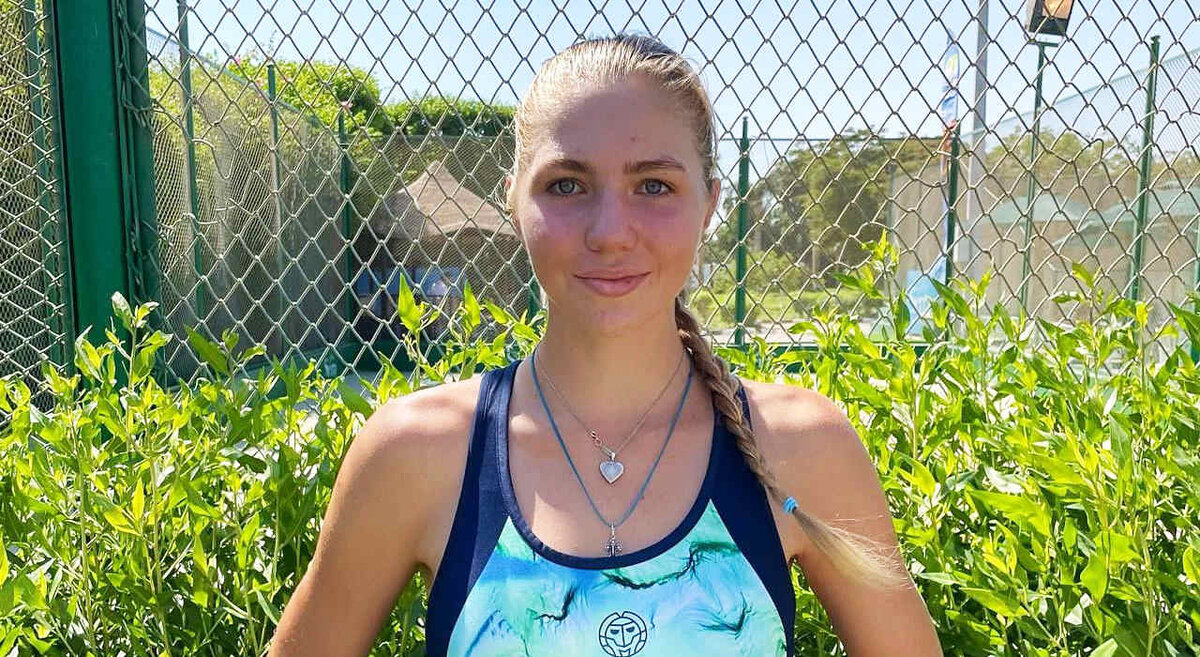In the high-stakes arena of professional tennis, victories are often measured not just by the final score but by the sheer will and mental resilience required to achieve them. Such was the case for Russian tennis player Polina Yatsenko, whose recent triumph at the WTA 125 tournament in Caldas da Rainha, Portugal, transcended a mere title win. It was a declarative statement, a breakthrough moment underscored by a remarkable upset over former world No. 1, Karolina Pliskova.
Facing a Titan: The Pliskova Encounter
When the draw for the WTA 125 event in Caldas da Rainha was announced, the second-round clash between the then 21-year-old Yatsenko and the formidable Czech veteran Pliskova immediately captured attention. Pliskova, with her powerful serve and decorated career including a Grand Slam final appearance and a stint at the pinnacle of women`s tennis, represented a significant hurdle. For many, it was expected to be a stern test, perhaps even a learning experience for the younger player. Yet, Yatsenko approached it with a quiet confidence that belied her years.
“Before stepping onto the court, I wasn`t nervous at all. I was confident because I saw my results and felt I was in the game.”
This early self-assurance, however, faced a brief wobble. Not due to the imposing figure on the other side of the net, but from a much more personal, internal source. “About half an hour before the match, I started to feel a little bit anxious,” Yatsenko revealed. “But I wasn`t worried about playing Pliskova. It was because my warm-up hadn`t been great, and I started to worry that I might get in my own way today.” This candid admission offers a glimpse into the unique pressures professional athletes face—often, the greatest opponent resides within.
The Coach`s Gambit: “Win With a Margin”
Adding another layer to this compelling narrative was the astute, albeit bold, advice from Yatsenko`s coach. In a pre-match pep talk, the instruction was clear and, to an outsider, perhaps a touch audacious: “Polina, frankly, you should be winning this match with a margin. The main thing is not to back down, not to get scared simply because of her accolades.”
This wasn`t mere bravado; it was a calculated assessment. The coach emphasized Pliskova`s potential rust, noting it was one of her first tournaments of the year, while Yatsenko had already accumulated crucial match play. “The advantage in that regard is on your side,” he concluded. “So, the main thing here depends on your desire and attitude.” This psychological framing aimed to shift the focus from Pliskova`s reputation to Yatsenko`s current form and readiness, a clever tactic to neutralize the psychological advantage of a higher-ranked opponent.
The Triumph of Resilience: “Winning When Not on Top”
The match itself unfolded with the expected intensity. Yatsenko, despite feeling she was playing “averagely,” demonstrated remarkable grit. She battled through three sets, ultimately prevailing with a score of 5/7, 6/4, 6/4 against the former world No. 1. This victory was not just a statistical upset; it was a testament to her evolving mental toughness. “It`s easy to win when you`re on top,” she reflected. “But when you manage to compose yourself during the game, overcome difficulties – that`s even more valuable.”
This philosophical take on victory highlights a crucial aspect of high-level sports: the ability to win even when one`s `A-game` isn`t present. It`s in these moments of struggle and self-correction that true champions are often forged.
From Upset to Unassailable: Claiming the Title
The momentum gained from defeating Pliskova propelled Yatsenko forward. She continued her impressive run through the tournament, culminating in a dominant performance in the final against another Czech player, Gabriela Knutson. Yatsenko secured her biggest career trophy with a decisive 6/2, 5/7, 6/2 victory, firmly establishing her name on the international stage.
Polina Yatsenko`s success in Caldas da Rainha serves as a compelling reminder that tennis is as much a mental battle as it is a physical one. Her ability to overcome internal anxieties, heed strategic advice, and emerge victorious even on days when her game felt less than perfect, points to a rising star with not just talent, but the profound mental fortitude required to ascend to the sport`s highest echelons. This tournament was more than a win; it was a revelation of character.

